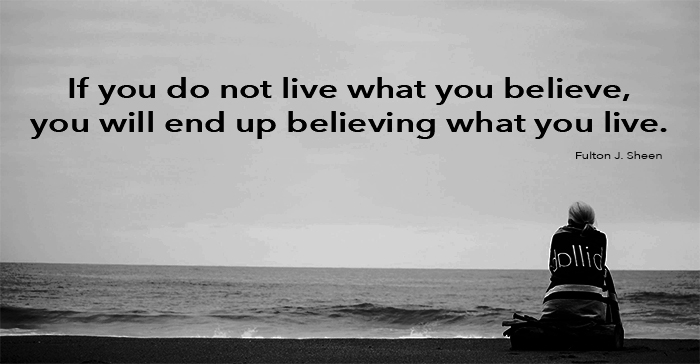
At the heart of our faith lies the deep truth that we are unconditionally loved by God. We believe that God looks down on our lives and says, “You are my beloved child; in you, I take delight!” Fr. Rolheiser writes that we do not doubt the truth of that; we just find it impossible to believe. This is for many reasons, though mostly because we rarely, if ever, experience unconditional love. Mostly, we experience love with conditions, even from those closest to us: Our parents love us better when we do not mess up. Our teachers love us better when we behave and perform well. Our churches love us better when we do not sin. Friends love us better when are successful and not needy. The world loves us better when we are attractive. Our spouses love us better when we do not disappoint them. Mostly, in this world, we must measure up in some way to be loved. So, even when we know that God loves us, how can we make ourselves believe it? At one level, we do believe it. Deep down, below our wounded parts, the child of God that still inhabits the recesses of our soul knows that it is made in God’s image and likeness and is special, beautiful, and loveable. But how do we make ourselves believe that we are unconditionally loved in a way that would make us less insecure in our attitude and our actions? How do we live in surer confidence that we are unconditionally loved so as to let that radiate in the way we treat others and ourselves? There are no easy answers. For a wounded soul, like for a wounded body, there are no magic wands for quick, easy healing. In great mythical literature, we see that, usually, before the great wedding where the young prince and the young princess are to be married so as to live happily ever after, there first has to be an execution: the wicked older brothers and the wicked stepsisters have to be killed off. Why? Because they would eventually come and spoil the wedding. Who are those wicked older brothers and wicked stepsisters? They are not different from the young prince or princess who is getting married. They are their older incarnations. They are also inside of us. They are the inner voices from our past that can, at any given moment, ruin our wedding or our self-image by dragging in our past humiliations and saying: “Who do you think you are? Do you really think that you can marry a prince or princess? Do you really think that you’re loveable? We know you; we know your past, so don’t delude yourself!” To truly believe that we are unconditionally loved, we first must kill a few “wicked older brothers and wicked stepsisters” that remain inside of us.
